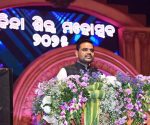Supreme Court Verdict: Mixed response to apex court verdict on SC sub-quota | Bhubaneswar News


Bhubaneswar: The Supreme Court’s decision to allow states to sub-categorise castes within the Scheduled Caste (SC) community has evoked a mixed response from activists and politicians. While one group believes that more deserving people within the community should reap the benefits of the reservation system, another group is opposed to the decision.
On Thursday, the Supreme Court permitted states to sub-categorise castes within the Scheduled Castes (SC) based on socio-economic backwardness and the degree of under-representation in govt jobs. This measure aims to ensure that larger share of 15 per cent quota goes to the most backward among them. Human rights activist and lawyer Radhakant Tripathy stated that underprivileged people from the SC category should have an advantage over well-off SC families. “This judgment will bring a ray of hope for the deprived masses,” he added. Rabi Behera, chairman of OBC forum, said sub-categorisation of SC community should not exist as long as untouchability, inequality, and social discrimination continue. He added that the weaker sections should unite against it.
Abhiram Mallick, convenor of the SCST and OBC joint action committee, said they would not accept the sub-categorisation within the SC caste. This will create hatred between one sub-group and another sub-group of the community. We will take up this issue at the national level, he added.
Shashi Bhusan Behera, a former minister and a BJD politician, said a creamy layer system should be introduced. “The creamy layer system will facilitate the community’s poor and underprivileged to get representation. I cannot comment on the sub-categorisation of the SC community because I am yet to read the detailed judgement,” he added. Former Congress MP Ananta Prasad Sethi said the judgment needs to be studied well before making any comments on this sensitive issue.
We also published the following articles recently
Following a Supreme Court judgment allowing the sub-categorisation of Scheduled Castes (SCs), individual leaders like Congress MP Mallu Ravi and DMK’s A Raja expressed their support for the decision, praising its potential impact on social justice. They highlighted the positive implications for underprivileged Dalit sub-groups and hoped for greater unity among these communities.
The Supreme Court ruled to allow states to sub-categorize Scheduled Castes based on socio-economic criteria to ensure the 15% quota benefits the most disadvantaged. It urged the exclusion of the creamy layer from reservations and mandated empirical data to justify any sub-classifications. The ruling overturned a 2004 decision and emphasized preventing political misuse.
Andhra Pradesh Chief Minister N Chandrababu Naidu supported the demand for sub-categorisation of scheduled castes since 1997. Naidu implemented these reservations in 2000, benefiting over 22,000 candidates from marginalised sections until 2004. Despite facing opposition, he continued advocating for the issue, even issuing an executive order during his 2014-19 tenure.















